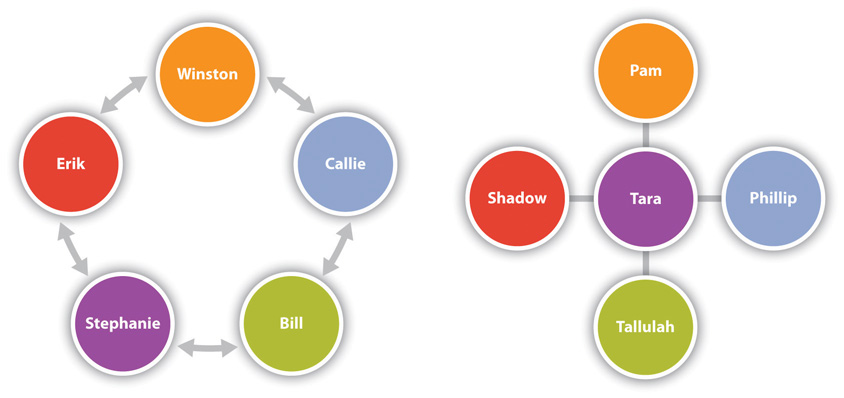Finding Supporting Material
As was noted in Section 9.1 "Selecting and Narrowing a Topic", it’s good to speak about something you are already familiar with. So existing knowledge forms the first step of your research process. Depending on how familiar you are with a topic, you will need to do more or less background research before you actually start incorporating sources to support your speech. Background research is just a review of summaries available for your topic that helps refresh or create your knowledge about the subject. It is not the more focused and academic research that you will actually use to support and verbally cite in your speech. Figure 9.3 "Research Process" illustrates the research process. Note that you may go through some of these steps more than once.
Figure 9.3 Research Process

I will reiterate several times in this chapter that your first step for research in college should be library resources, not Google or Bing or other general search engines. In most cases, you can still do your library research from the comfort of a computer, which makes it as accessible as Google but gives you much better results. Excellent and underutilized resources at college and university libraries are reference librarians. Reference librarians are not like the people who likely staffed your high school library. They are information-retrieval experts. At most colleges and universities, you can find a reference librarian who has at least a master’s degree in library and information sciences, and at some larger or specialized schools, reference librarians have doctoral degrees. I liken research to a maze, and reference librarians can help you navigate the maze. There may be dead ends, but there’s always another way around to reach the end goal. Unfortunately, many students hit their first dead end and give up or assume that there’s not enough research out there to support their speech. Trust me, if you’ve thought of a topic to do your speech on, someone else has thought of it, too, and people have written and published about it. Reference librarians can help you find that information. I recommend that you meet with a reference librarian face-to-face and take your assignment sheet and topic idea with you. In most cases, students report that they came away with more information than they needed, which is good because you can then narrow that down to the best information. If you can’t meet with a reference librarian face-to-face, many schools now offer the option to do a live chat with a reference librarian, and you can also contact them by e-mail or phone.
Aside from the human resources available in the library, you can also use electronic resources such as library databases. Library databases help you access more credible and scholarly information than what you will find using general Internet searches. These databases are quite expensive, and you can’t access them as a regular citizen without paying for them. Luckily, some of your tuition dollars go to pay for subscriptions to these databases that you can then access as a student. Through these databases, you can access newspapers, magazines, journals, and books from around the world. Of course, libraries also house stores of physical resources like DVDs, books, academic journals, newspapers, and popular magazines. You can usually browse your library’s physical collection through an online catalog search. A trip to the library to browse is especially useful for books. Since most university libraries use the Library of Congress classification system, books are organized by topic. That means if you find a good book using the online catalog and go to the library to get it, you should take a moment to look around that book, because the other books in that area will be topically related. On many occasions, I have used this tip and gone to the library for one book but left with several.
Although Google is not usually the best first stop for conducting college-level research, Google Scholar is a separate search engine that narrows results down to scholarly materials. This version of Google has improved much over the past few years and has served as a good resource for my research, even for this book. A strength of Google Scholar is that you can easily search for and find articles that aren’t confined to a particular library database. Basically, the pool of resources you are searching is much larger than what you would have using a library database. The challenge is that you have no way of knowing if the articles that come up are available to you in full-text format. As noted earlier, most academic journal articles are found in databases that require users to pay subscription fees. So you are often only able to access the abstracts of articles or excerpts from books that come up in a Google Scholar search. You can use that information to check your library to see if the article is available in full-text format, but if it isn’t, you have to go back to the search results. When you access Google Scholar on a campus network that subscribes to academic databases, however, you can sometimes click through directly to full-text articles. Although this resource is still being improved, it may be a useful alternative or backup when other search strategies are leading to dead ends.